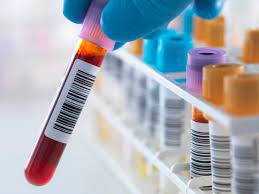What are normal liver function tests (LFTs)?

What are liver function tests?
Liver function tests (also called LFTs, or liver enzymes) are blood tests that can provide information about how your liver is working. Your liver is a large organ in your abdomen (tummy).
It is the factory of the body (the kidneys are the dustmen), which has many different functions.
For example, it:
- Filters toxic chemicals
- Stores vitamins and minerals
- Processes medicines and alcohol
- Makes bile, proteins and enzymes.
LFTs measure the levels of proteins, enzymes and other substances that are made by your liver.
Some of these tests show how well your liver is working. Some measure enzymes that are released into the blood when liver cells are damaged.
Tests that make up LFTs
- Bilirubin (bili) = <21 µmol/L. High in liver disease
- Alkaline phosphatase (alk phos, ALP) = 30-130 IU/L. There are bone and liver subtypes of alk phos
- ɣ–glutamyl transpedtidase (GGT) = 1-55 IU/L
- Alanine aminotransferase (ALT) = 15-45 IU/L
- Aspartate aminotransferase (AST) = 15-42 IU/L
- Albumin (Alb) = 35-50 g/L. Low in liver disease
- Globulin (Glob) = 20-40 g/L
- Total protein (TP) = 60-80 g/L.
Note. The best markers of the function of the liver are bilirubin, and albumin (high and low respectively if liver is there is impaired function of the liver).

